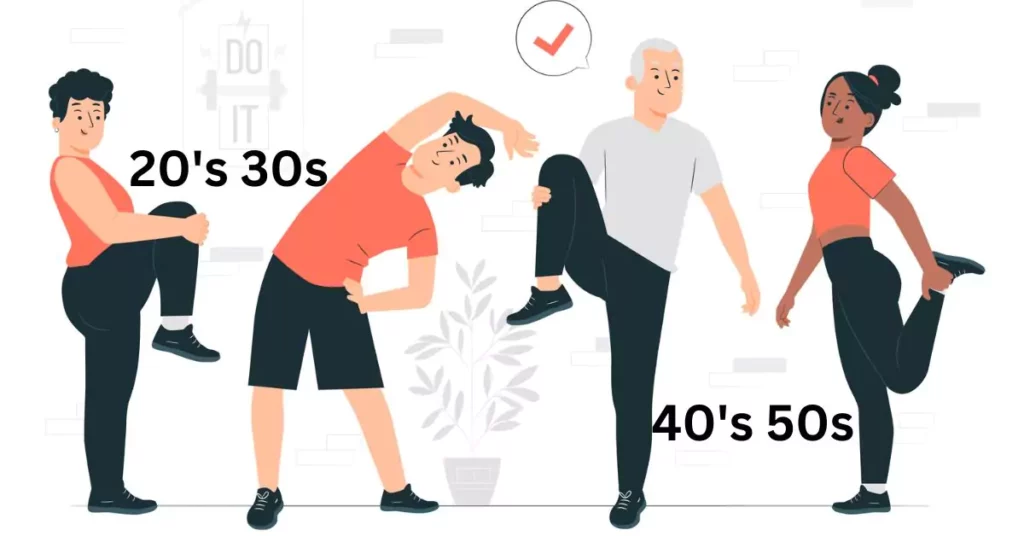
Many of us focus on improving our physical health through exercise, diet, and regular check-ups. But what if there was a simple test that could predict how long you’ll live? According to nutrition expert Ed Jones, there is, and it’s not a blood test or cholesterol check—it’s a grip strength test. This easy at-home test might reveal your risk for early mortality, and Jones believes it’s a critical marker for overall health.
What Is the Grip Strength Test?
The grip strength test is exactly what it sounds like: a simple test of how much weight you can hold in your hand. According to Ed Jones, the test is a strong indicator of overall body health, including heart health, muscle strength, and even longevity. All you need to perform this test at home is a set of dumbbells.
Jones revealed this on his Nutrition World Podcast, drawing on insights from Dr. Peter Attia, a renowned expert in longevity medicine. The idea is that those who have better grip strength are likely to live longer, while weaker grip strength could indicate a higher risk of early death.

According to Jones, “If you can’t hold a dumbbell that’s 3/4ths of your body weight for one minute, you will die earlier than you would if you were stronger.” This statement may sound alarming, but it highlights the crucial connection between physical strength and longevity.
Why Grip Strength Matters
Grip strength is more than just a measure of how strong your hands are. It’s actually a reliable indicator of overall muscle strength, which can directly impact your cardiovascular and respiratory systems. Stronger individuals tend to have fewer chronic diseases, including heart disease and respiratory illnesses, both of which are major causes of early mortality.
In fact, research backs up the idea that grip strength can be a predictor of longevity. Studies have shown that people with lower grip strength are more likely to suffer from cardiovascular diseases and are at a higher risk of mortality. It’s also been linked to other health issues such as respiratory problems, diabetes, and even cognitive decline.
How to Perform the Grip Strength Test at Home
If you’re curious about your own grip strength and want to see how you measure up, you can easily perform this test at home. Here’s a step-by-step guide:

- Gather Your Equipment: You’ll need dumbbells that weigh roughly 75% of your body weight. For example, if you weigh 160 pounds, you should use a dumbbell that weighs about 120 pounds.
- Perform the Test: Hold the dumbbells in each hand. Grip them tightly and try to hold them for one minute without dropping them.
- Evaluate Your Results: If you can hold the dumbbells for the full minute, your grip strength is likely adequate. If you struggle to hold the weight or can’t make it to one minute, you may need to work on building your strength.
How Weak Grip Strength Impacts Your Health
When we think about longevity, we often focus on diet, exercise, and avoiding bad habits like smoking. But grip strength offers a new and important marker of health. Here’s how weak grip strength can affect different aspects of your health:
- Heart Health: Grip strength is linked to the overall strength of your muscles, including your heart. A weak grip may signal reduced cardiovascular function, increasing your risk of heart disease and heart attacks.
- Respiratory Function: Stronger muscles support better lung function. Those with weak grip strength are more likely to suffer from respiratory conditions, which can lead to complications such as pneumonia or chronic obstructive pulmonary disease (COPD).
- Overall Muscular Health: Weak grip strength indicates poor muscular function. This could mean that your body is more susceptible to injuries, fractures, and loss of mobility as you age.
- Cognitive Health: Surprisingly, weak grip strength has been linked to a higher risk of cognitive decline and dementia. Studies suggest that muscle health is closely related to brain health, and those with stronger grip strength tend to have better cognitive function in old age.
How to Improve Your Grip Strength and Overall Health
The good news is that if you find your grip strength is weak, you can take steps to improve it. Here are some tips to help you strengthen your grip and improve your overall health:
- Grip-Strengthening Exercises: There are specific exercises designed to improve grip strength, such as using hand grippers or squeezing a stress ball. These can help increase the muscles in your hands and forearms.
- Strength Training: Incorporating weightlifting into your routine is one of the best ways to build overall muscle strength, including grip strength. Exercises like deadlifts, farmer’s carries, and pull-ups engage your grip muscles and strengthen your entire body.
- Stay Active: Regular physical activity, such as walking, cycling, or swimming, helps maintain muscle mass and cardiovascular health, both of which contribute to better grip strength.
- Improve Your Diet: A balanced diet rich in protein, healthy fats, and vitamins helps build and repair muscles. Focus on nutrient-dense foods that promote muscle growth and maintenance.
- Hydrate: Staying hydrated is essential for muscle function, as dehydration can lead to muscle cramps and weakness.
- Work with a Trainer: If you’re unsure where to start, consider working with a fitness trainer who can help design a personalized workout plan to improve your strength.
Scientific Studies Supporting Grip Strength as a Longevity Indicator
Numerous studies have backed up the connection between grip strength and longevity. For instance, a study published in The Lancet found that lower grip strength was associated with higher mortality rates from all causes, including cardiovascular disease and cancer. The researchers concluded that grip strength is a simple yet powerful predictor of overall health and survival.
Another study conducted by the British Medical Journal found that grip strength could be an early indicator of declining health, even before traditional risk factors like high blood pressure or cholesterol levels are detected.
These studies underscore the importance of maintaining strength as we age. By focusing on improving grip strength, you can take proactive steps to reduce your risk of chronic diseases and potentially increase your lifespan.
Precautions and Safety Tips for Strengthening Grip
Before you start testing or improving your grip strength, it’s important to consider your safety. Here are some precautions and tips to ensure you’re building strength safely:
- Start Slow: If you’re new to strength training, don’t jump into heavy weights right away. Start with lighter weights and gradually increase the load over time.
- Warm Up: Always warm up your muscles before engaging in strength exercises to reduce the risk of injury.
- Maintain Proper Form: Whether you’re lifting weights or doing grip exercises, make sure you’re using the correct form to avoid putting strain on your wrists or joints.
- Listen to Your Body: If you experience pain during grip exercises, stop immediately and consult a healthcare professional.
- Consult a Doctor: If you have underlying health conditions, such as arthritis or a history of fractures, consult a doctor before engaging in strength training.
Simple Test, Big Impact
The grip strength test might seem straightforward, but it could be one of the most important indicators of your future health. By focusing on building strength, maintaining an active lifestyle, and eating a balanced diet, you can improve your grip strength and reduce your risk of chronic diseases. Take the test, work on your strength, and embrace a healthier, longer life.
Improving your grip strength is a simple yet effective way to ensure you’re staying healthy and reducing your risk of early mortality. If you’re ready to take charge of your health, try the grip strength test today. Subscribe to our newsletter for more tips on staying healthy, increasing strength, and living a longer life.

























































































































